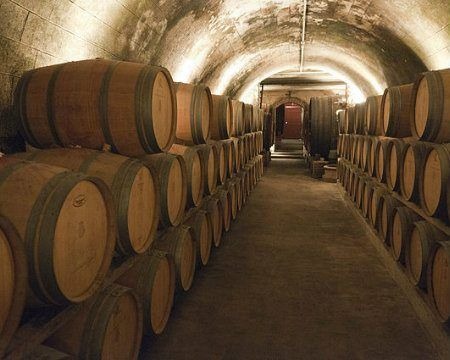Château Latour Sits Out Futures Sale
Preeminent winemaker Château Latour is stirring up the Bordeaux market with its announcement that starting this year it would be sitting out the traditional wine futures sale, a move that's created tension between the region's producers and wine merchants.
For centuries the wines in the region have been sold by local intermediaries called négociants, not the chateaus themselves. The négociants sell the barreled wine to merchants, distributors, and importers and get 15 percent of the wholesale price for their efforts.
But Château Latour said it would start keeping its vintages until they are ready to drink, then price them accordingly and sell them itself.
Some winery owners have been complaining that by selling their wines early to intermediaries, they miss out on massive gains from growing international interest in Bordeaux. According to The New York Times, in the case of vintages like 2005 and 2008, some wines doubled or tripled in value after the initial sale, but the profits didn't necessarily come back to the wineries.
The traditional system benefited wineries by giving owners upfront capital to invest in the production of the next vintage. But the corporations that have been buying established wineries and billionaire new owners like Château Latour owner François Pinault have enough capital that they don't need to worry about selling the newest vintage to finance the next. They can just sit on the wine and wait for it to be perfect.
Château Latour director Frédéric Engerer maintains the move is not about money, though. He says the traditional system encourages people to drink Latour too early, instead of waiting the decade or two it takes for the wine to reach its peak.
"We want to provide our wines to our customers at the best moment and with best possible quality," he said to the Times. "This makes all the more sense for Latour, which is one of the longest-aging wines of Bordeaux."
The négociants say it's totally about money, and that breaking the system will break the entire Bordeaux wine economy. Other chateau owners are conflicted, but with a chateau as prominent as Latour bucking the system, people will be watching to see how the experiment works out.
"People have been saying for 30 years that en primeur is dead," said one chateau owner of the traditional sales system. "It's true that nothing you learned in business school applies here. But en primeur keeps going."
